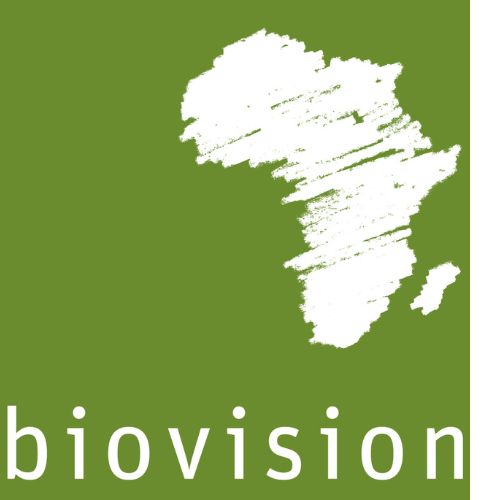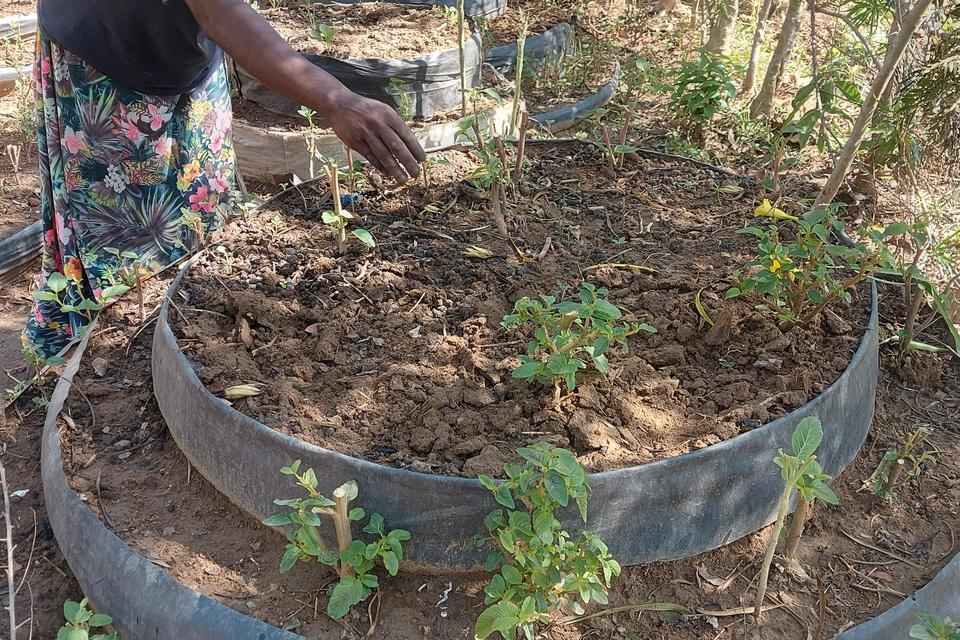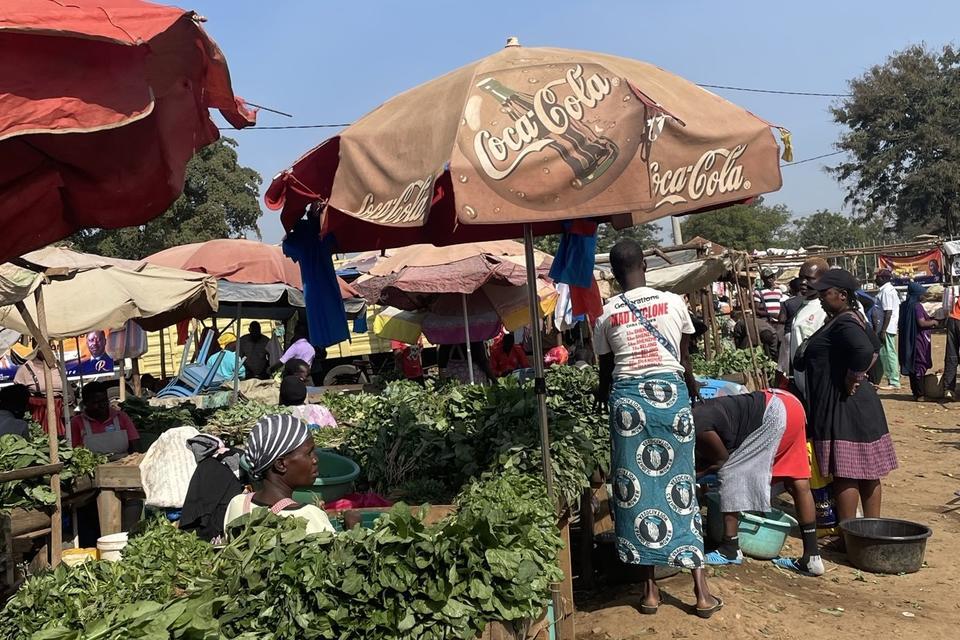Blog Food forests are connecting vulnerable consumers and organic farmers in Kenya
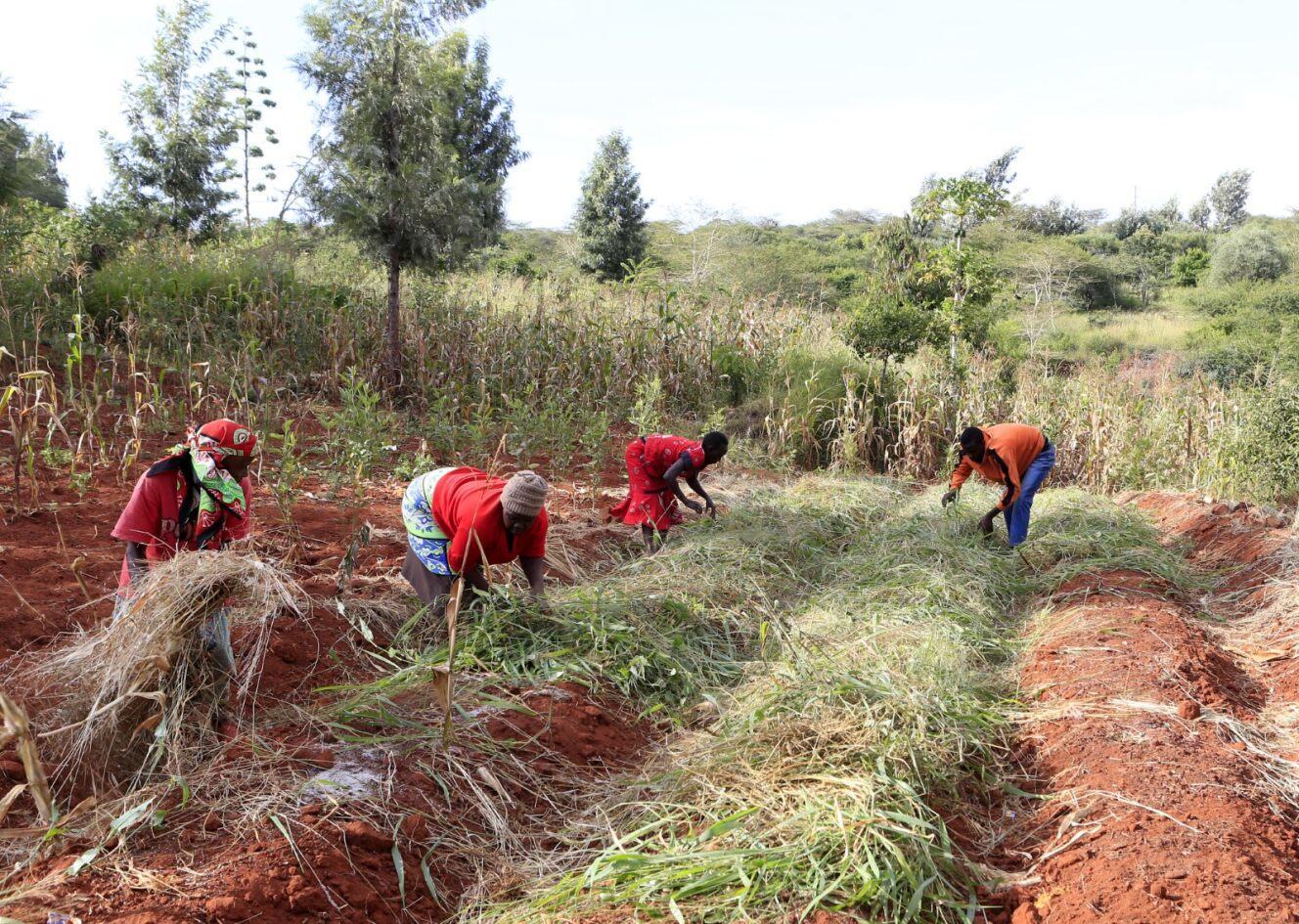
It’s a win-win situation in Kenya, where a regenerative food system approach is being piloted by researchers, organic producers, and urban consumers.
By: Irene Induli, Nicanor Odongo, Thiong’o Gachie, Elizabeth Njoka, Hannah Kigamba, Céline Termote
The Alliance of Bioversity International and CIAT is collaborating with Feedback to the Future (FttF) and Diabetes Awareness Trust (DAT) to connect urban consumers with small scale organic producers/farmers. The three-year project is funded by the Biovision Foundation, Switzerland and implemented in Kilome sub-county, Makueni County, where the farmers are located, and Makadara sub-county, Nairobi County, where the consumers reside.
The overall goal of the project is to build a regional, healthy, inclusive, and regenerative food system in Kenya by piloting an organic fruits and vegetables food chain from production to consumption.
Feedback to the Future works on the production side by empowering farmers with knowledge and skills to shift practices towards regenerative agriculture and organic production. Diabetes Awareness Trust is raising consumer awareness of nutritious diets and food safety to prevent malnutrition and non-communicable diseases. The Alliance is spearheading the research component of the project, assessing current consumption patterns, mapping food environments, and analyzing fruits and vegetables value chains. The data will inform the co-creation of an alternative market linkage model to connect organic producers with consumers, facilitating improved incomes for farmers while ensuring vulnerable consumers’ access to organic, safe, and nutritious food at affordable prices.
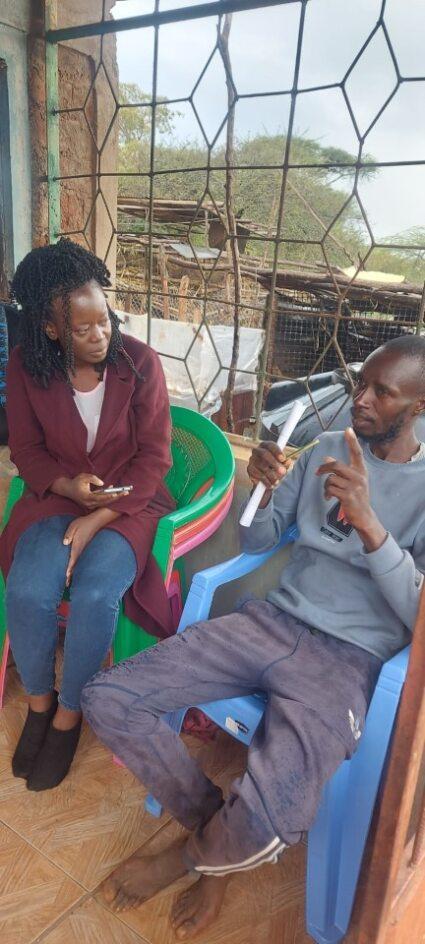
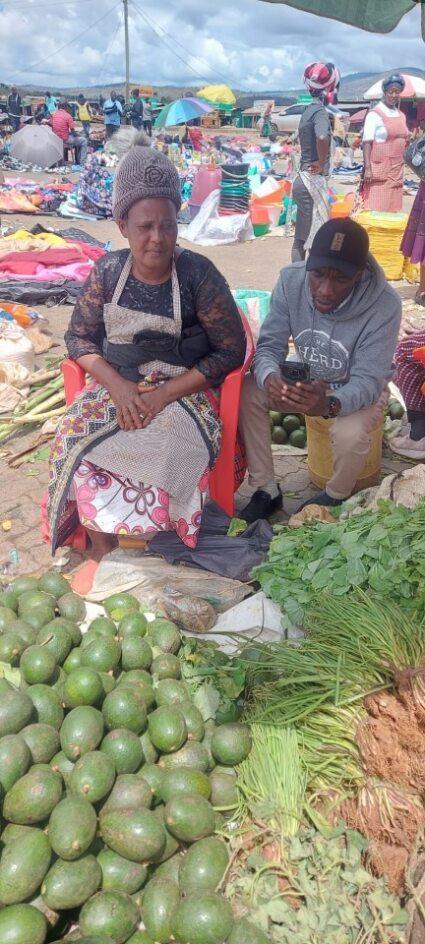
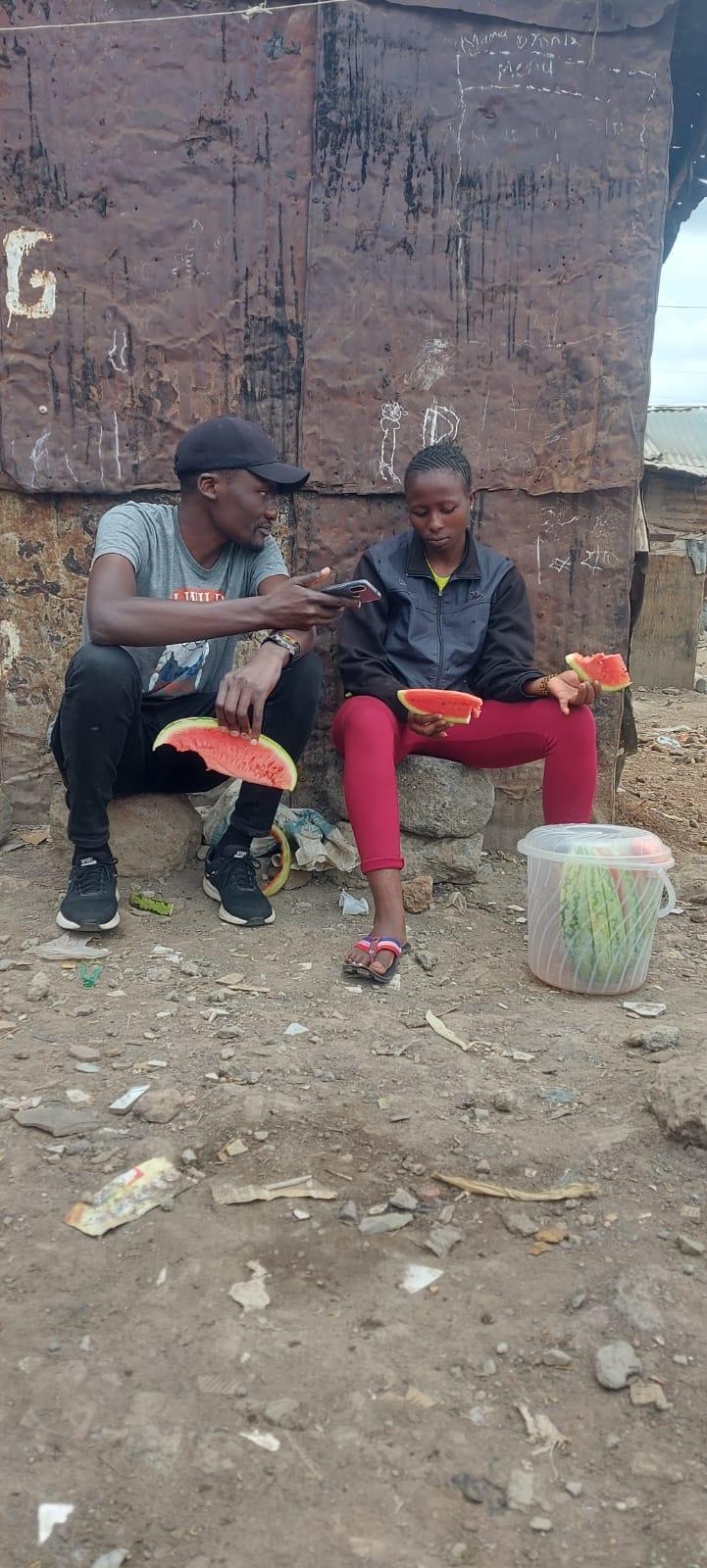

Enumerators collecting data from various actors during the diagnostic assessment conducted between September and December 2023. (Photo credits: Irene Induli/Alliance Bioversity International & CIAT. November 2023)
Feedback to the Future is promoting syntropic farming, a form of regenerative agriculture that promotes food forests. This is practiced in Kilome, while in Makadara they are training the slum dwellers to utilize the small spaces available to produce organic, safe, and nutritious food by setting up vertical and rooftop gardens.
Syntropic farming is a type of agroforestry that uses biodiversity to regenerate depleted soils while organically producing diverse foods such as fruits, vegetables, and grasses, contributing to dietary diversity and food security. The creation of food forests replenishes soil health, produces safe organic food, and helps restore agrobiodiversity, thereby helping to reverse the adverse effects of climate change.
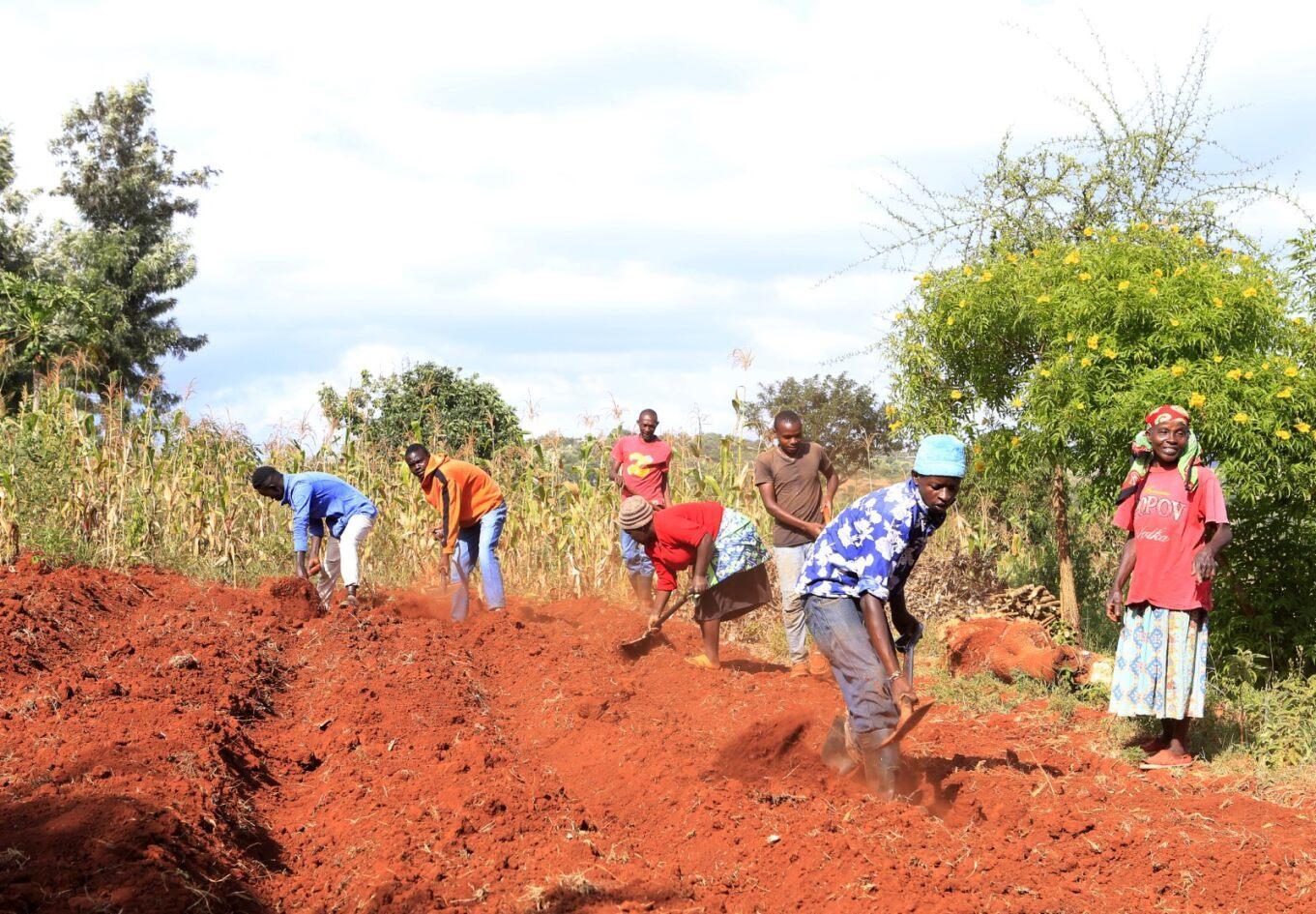
Members of the Matendo Green farmers’ group prepare land to plant syntropic gardens (Photo credits: Noor Khamis/Biovision Foundation, February 21, 2024)
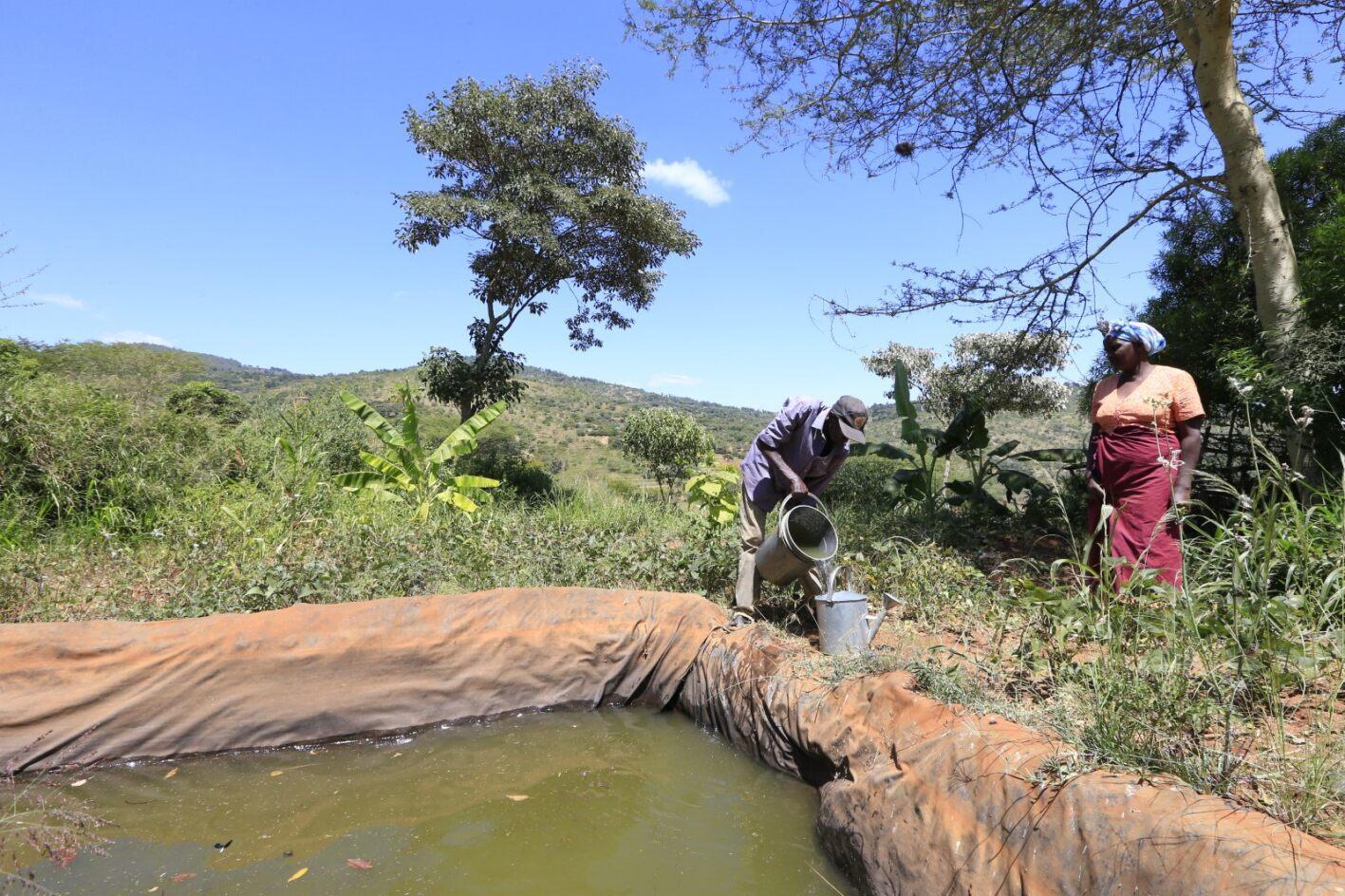
Mr. Steve Wambua fetches water from his water pan to irrigate his farm as his wife Racheal Katumbi looks on. (Photo credits: Noor Khamis/Biovision Foundation, February 21, 2024)
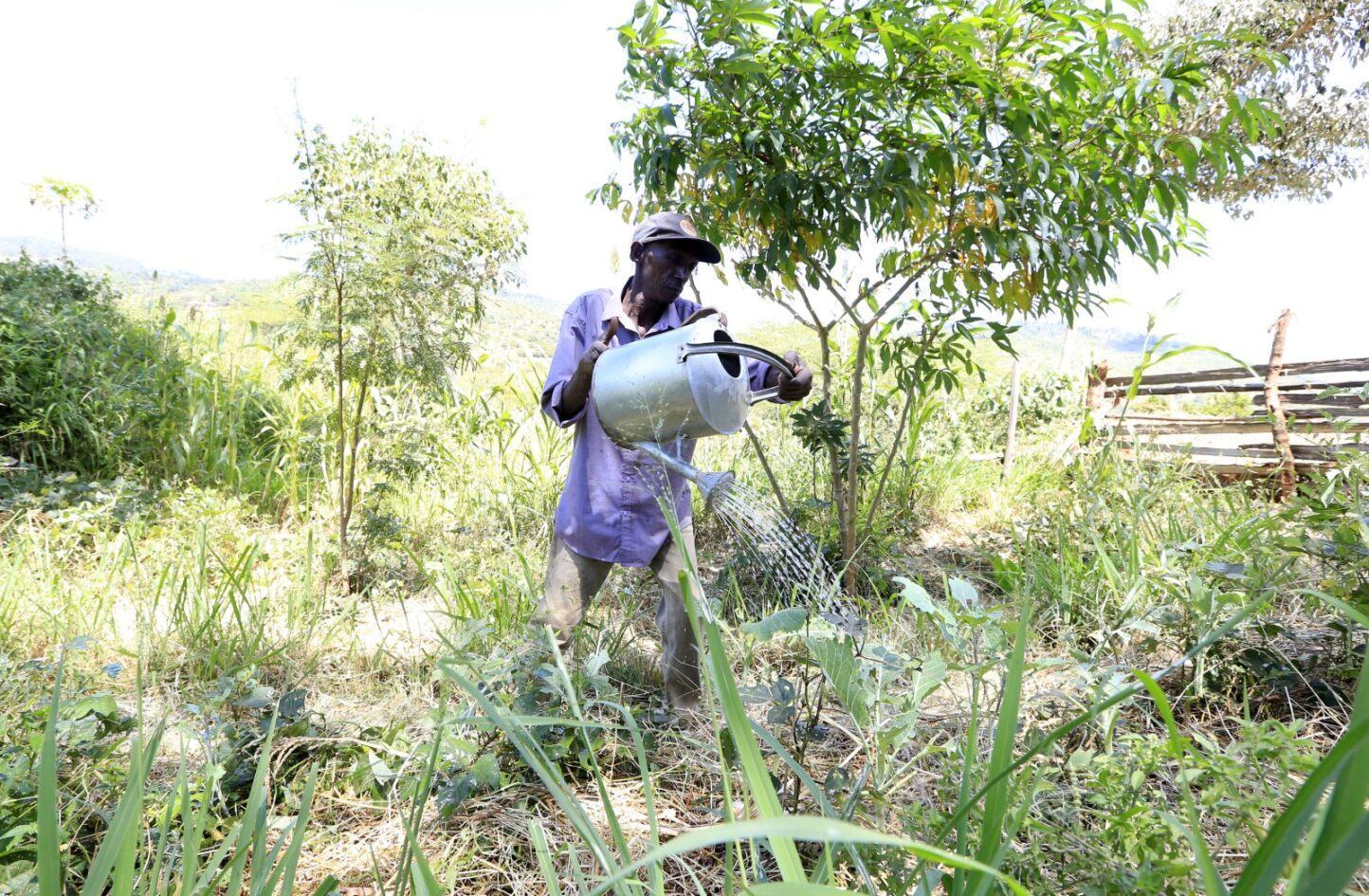
FttF also supports individual farmers and farmer groups to put up personal and communal water harvesting infrastructure to ensure crop production even during the dry season, and to water fruit trees until the next rainy and fruiting season. The farmers also practice other regenerative agriculture techniques such as water management, which involves the construction of swales, terraces, and diversion channels to collect rainwater; and soil management, which entails soil building using compost and vermiculture, the rearing of compost worms using kitchen and farm waste to produce compost.
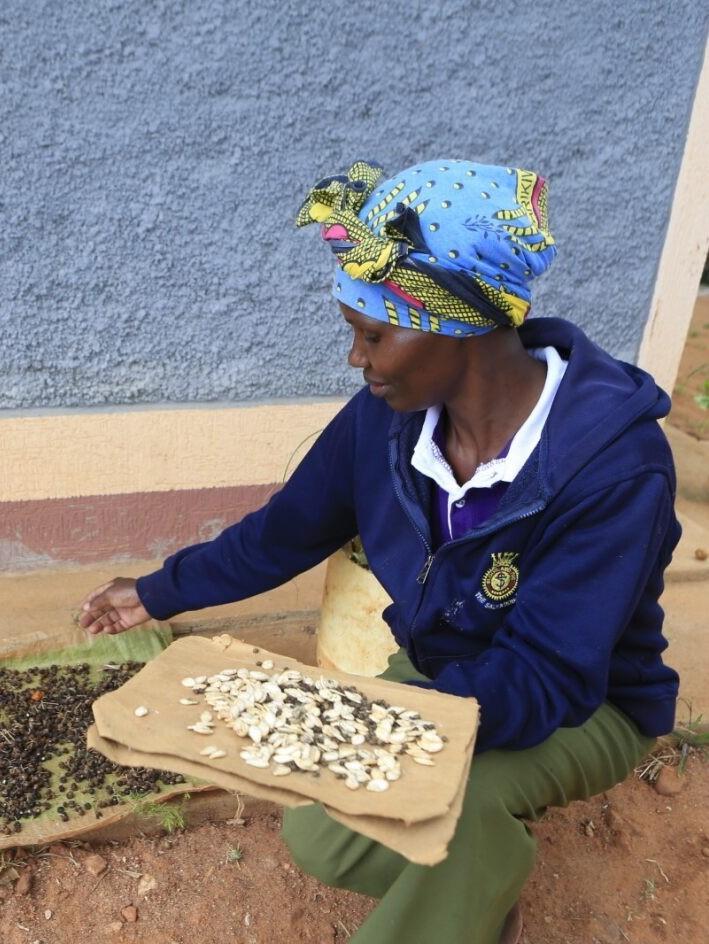
Mrs. Miriam Wambua sorting different vegetable seeds from her farm; black nightshade seeds drying, and her pot vegetable garden (Photo credits: Noor Khamis/Biovision Foundation, February 21, 2024)
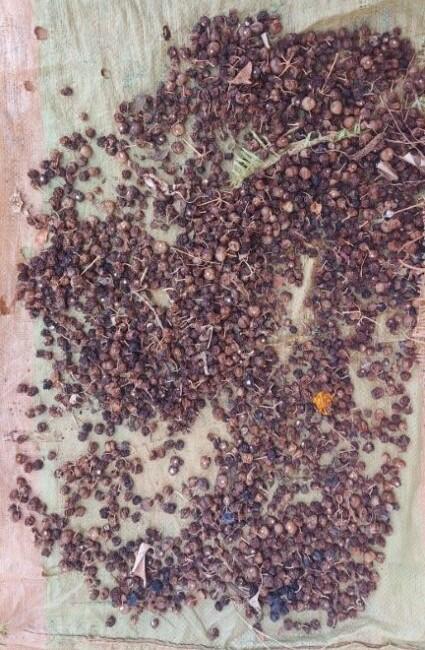

In addition to receiving training on syntropic production methods, the farmers are equipped with seed harvesting and preservation techniques. This helps them to save money that would otherwise be spent on buying seeds, while preserving local diversity.
Kilome is also rich in wild edible fruits and vegetables, natural food sources that are often overlooked when it comes to promoting nutrition security. Through the project, local communities will be sensitized on the value of these food resources, to promote their consumption for healthy diverse diets, and conservation.
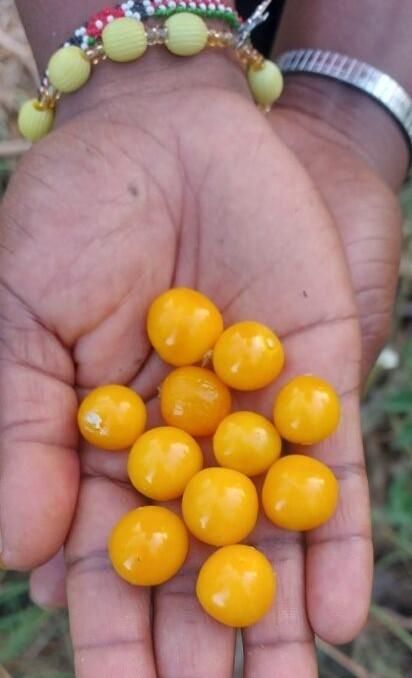
Some of the wild fruits found in Kilome. L to R Cape Gooseberry (Physalis peruviana) Ndula (Ximenia Americana) and Kei Apple (Dovyalis caffra). (Photo credits: Irene Induli/Alliance Bioversity International & CIAT, February 21, 2024)
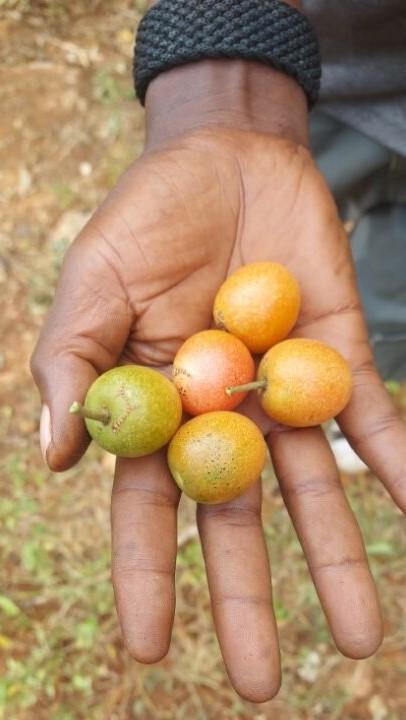
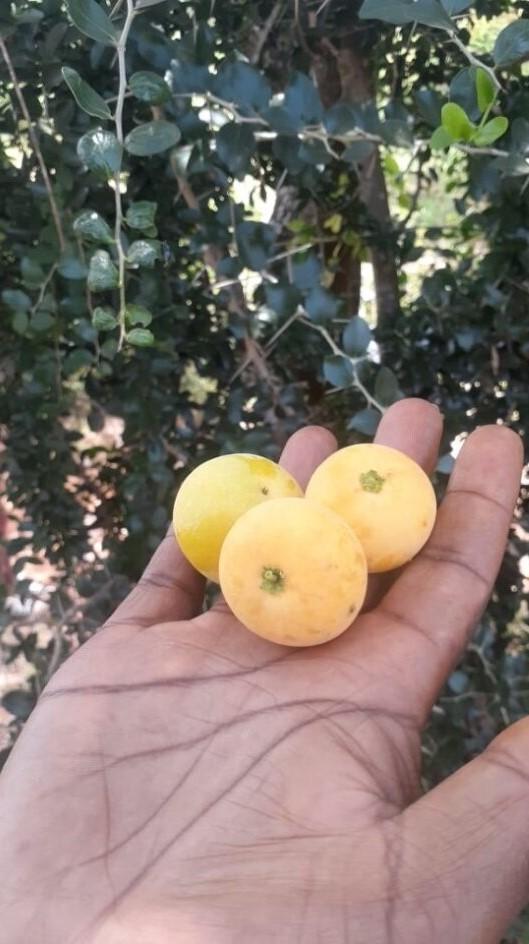
Research shows that the fruits and vegetables sold in Nairobi markets are contaminated with heavy metals and harmful chemical residues (Nyika and Dinka, 2022). This is coupled with an alarming increase in non-communicable diseases (NCDs) such as hypertension, diabetes, and cancer, with informal settlements bearing the greatest burden. According to Haregu et al., 2015, one in five people are exposed to NCDs risk factors from unhealthy food environments. In addition, organic food is often presumed to be for the affluent, and prices are out of reach for the economically vulnerable, but slum dwellers, like everyone else, have a right not only to food/kilocalories, but also to safe, nutritious, and affordable food.
In light of these challenges, the Alliance, DAT and FttF have come together to raise awareness about food safety and healthy diets, promote environmental conservation through regenerative agriculture, and increase access to organic, safe and nutritious food at affordable prices while providing a decent income to rural smallholder farmers. During the first year of the project, the Alliance collected data on the food environments, adolescent, and their mothers’ dietary intake, household dietary patterns, market dynamics, and fruits and vegetables production, among other areas. The collected data is currently undergoing analysis, while the other partners continue to implement activities such as farmer trainings on syntropic agriculture, consumer awareness campaigns, cooking workshops, and vendor trainings on selling organic produce.
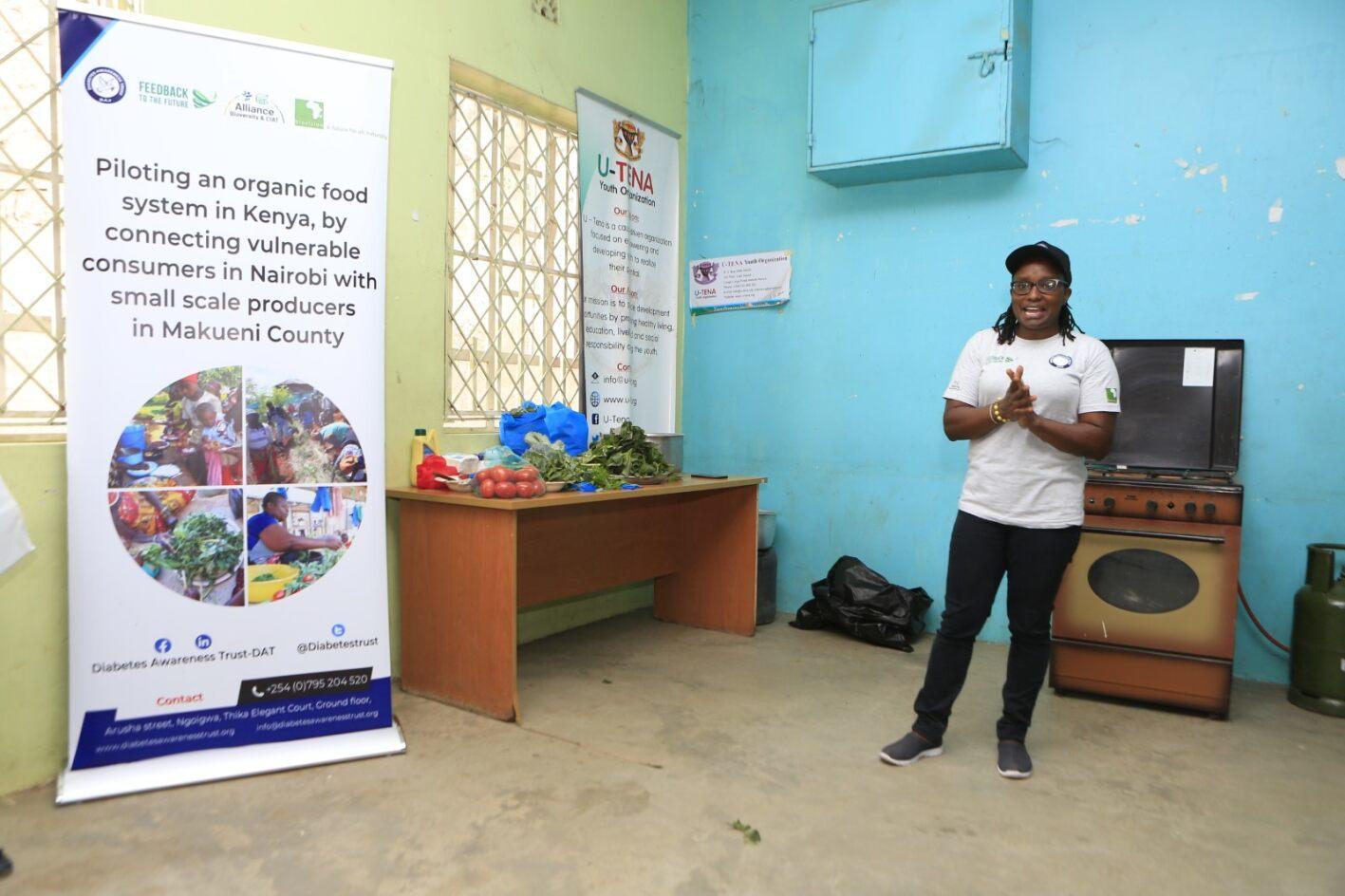
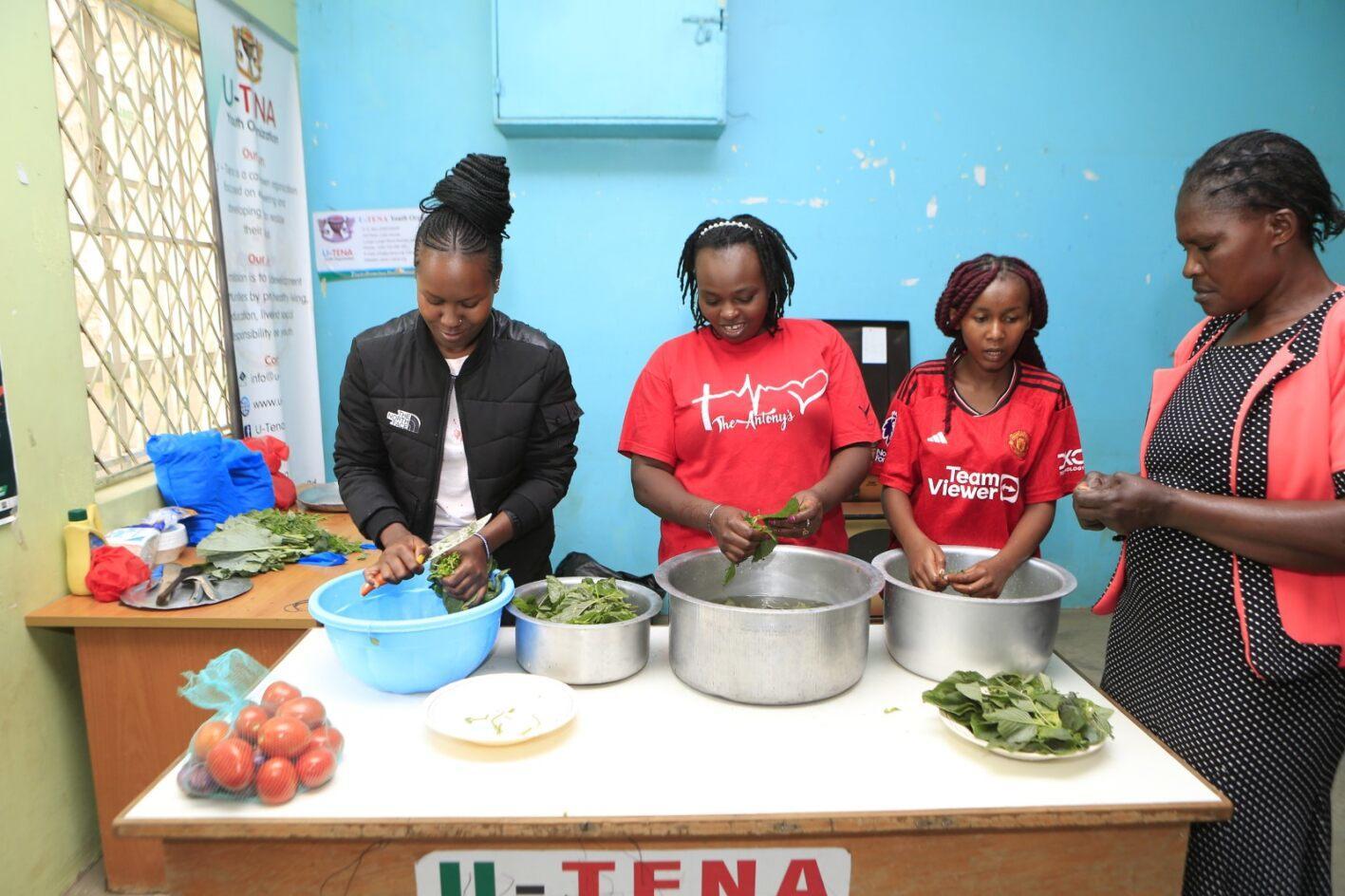
Diabetes Awareness Trust-DAT conducts nutrition education and participatory cooking workshop in Viwandani (Photo credits: Noor Khamis/Biovision Foundation, February 20, 2024)
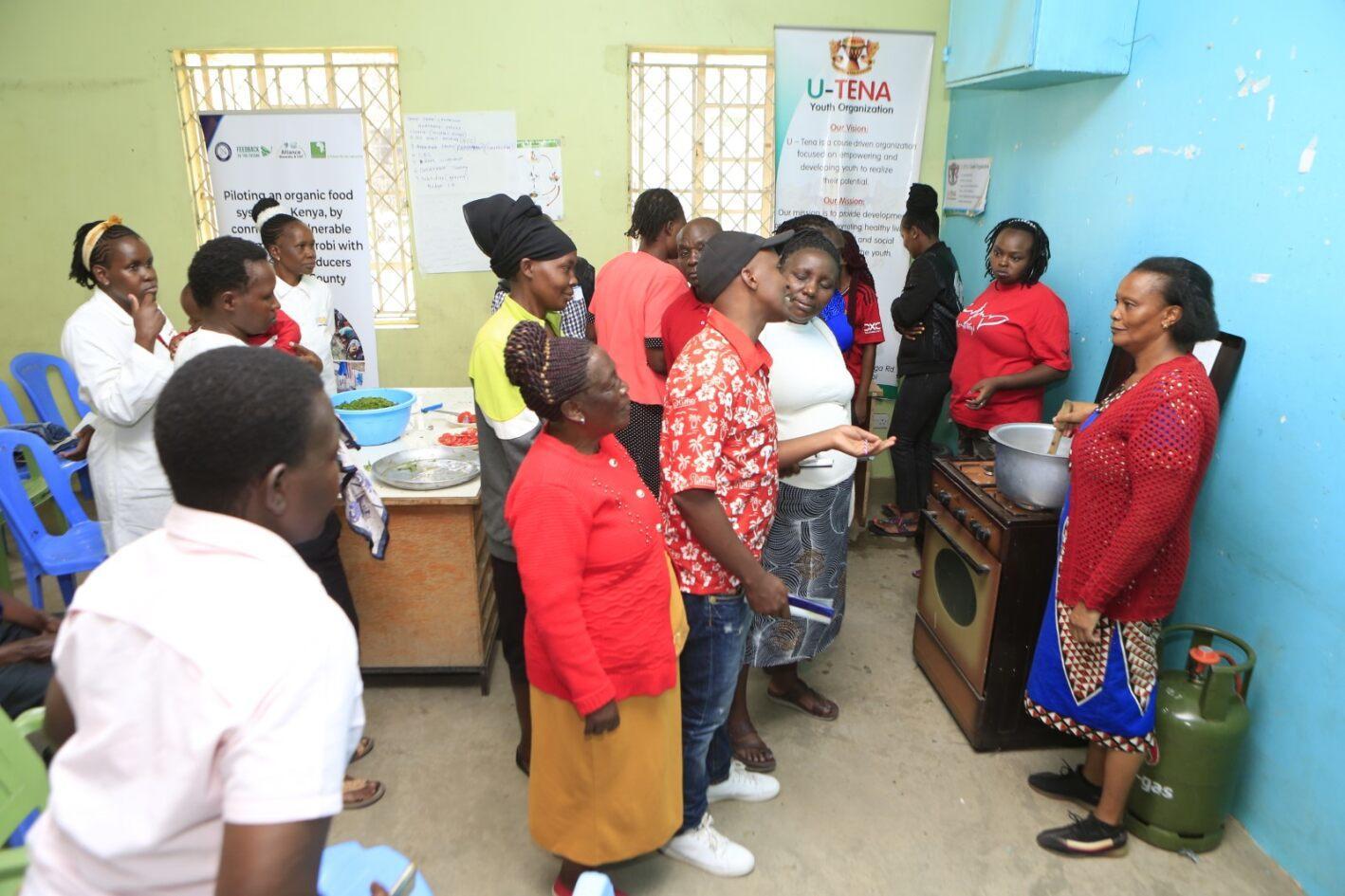
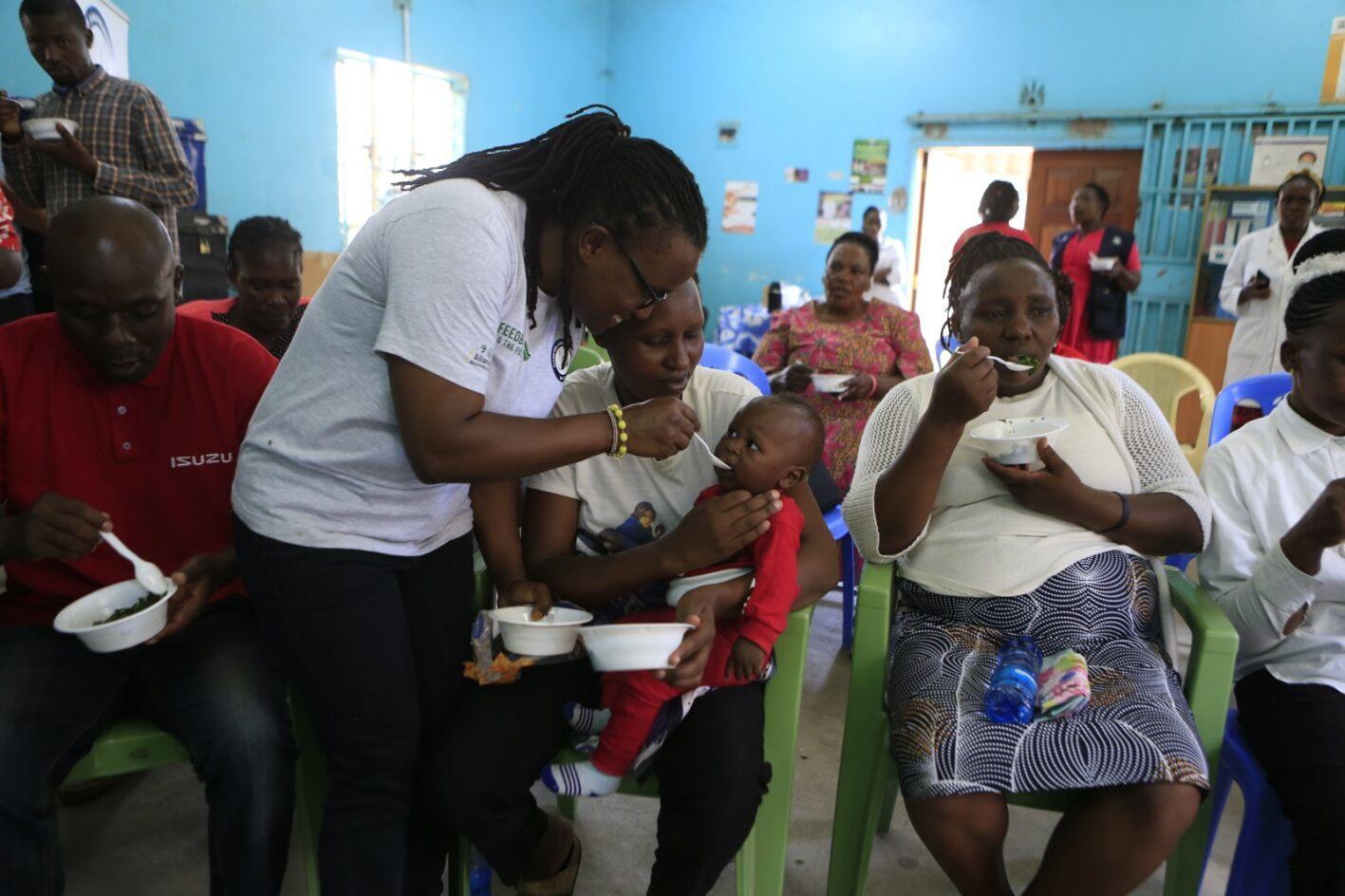
At the end of the project, we aim to achieve:
-
Increased awareness and improved food acquisition and preparation practices that promote healthy, safe diets for poor urban consumers in Makadara sub-county through consumers education on food safety, diverse diets, and health-related aspects (such as prevention of NCDs).
-
Improved access to affordable, organic, nutritious, and safe food for vulnerable urban consumers in Makadara sub-county, by co-creating new business models that support sustainable, cost-effective market linkages with fair incomes for all value chain actors.
-
Fair incomes and decent livelihoods for small-scale farmers in Kilome sub-county through the adoption of agroecological farming practices, the formation of collectives to access capital and sell organic produce, and the co-creation of a sustainable, cost-effective organic food chain linking farmers to vulnerable urban consumers; and
-
A pilot-tested organic food system model that supports evidence-based decision-making and scaling to stakeholders in the broader Kenyan food system context.
The Team

Céline Termote
Senior Scientist - Africa Regional Team leader Food Environment and Consumer Behavior
Irene Mudiovo Induli
Research Associate
Nicanor Odongo
Research FellowThe three-year project is funded by the Biovision Foundation, Switzerland, and implemented in Makueni and Nairobi counties by the Alliance of Bioversity International and CIAT, in collaboration with Feedback to the Future and the Diabetes Awareness Trust.

